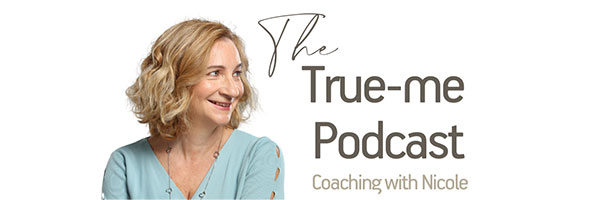Nevertheless, in the turbulent times we are all facing, it’s important that we understand and practice detachment and empathy more than ever. For many, it’s not easy being so open to the needs of the world. And that is because, like sponges, their energy fields are porous and prone to soak up the energies of others. Absorbing negative energies (consciously or unconsciously) , lead them to often feel compassion fatigue , empathy overload or even worse, they start reacting the way others react, subtracting from themselves the possibility to focus on what could really be of importance to them.
Practicing compassionate detachment shows us a broader, more spiritual perspective on life. The practice of compassion involves empathy, which leads to a relationship between equals, rather than sympathy, which leads to a hierarchical relationship in which one person feels sorry for the other. I see it all too often with my clients. They have this preconception that others are ‘less’ and they are “more”. This could not be further from the truth. We are all born equal in our possibilities and it is only our upbringing, our mindsets and our stand in life that separate us.
It is important also that we realize this: Treating others as problematic (even if they are our children or people very close to us) is also a game we play, to cover our insecurities and our own, deep, negative perceptions of ourselves.
To be empathetic toward others, even those who are deceitful or hurtful, requires that you open your heart and feel compassion for yourself, dissolving the walls you have erected for self-protection.
Detachment lays the ground for empathy. And empathy is embedded in us all. Science has demonstrated that humanity is united by empathy, a phenomenon that has been observed in children as young as one year of age. Research shows that, when we feel compassion, the most sophisticated thought centers in our brains light up, indicating that we are neurologically hardwired to be compassionate toward others. Compassion brings our brain into harmony with the vibration of love from our heart center. Moreover, the more compassionate we are with ourselves, the more our capacity for empathy increases, demonstrating that we have understood the laws of life. Then, we are ready to respond with the same kindness to the emotional needs of others -and detachment supports us in being effective whilst doing that.
Being compassionate toward others, does not require you to engage in any unhealthy mental or emotional experiences they might be having. In fact, compassion requires that you remove yourself from their mental process, and instead support them from a place where you feel stable and empowered. You can care about a person while still refusing to play a part in their drama. For instance, when someone wants to vent his/her negative feelings about a particular issue, you can listen with an open heart but still refrain from taking on their negativity, giving unsolicited advice, or trying to fix the situation. This allows you to provide productive support whilst remaining calm, nonreactive, and nonjudgmental.
Detachment is Empathy in action. When someone is stuck in a dark hole, your empathy can provide with a helping hand, that will support them to lift themselves out from their situation. By contrast, sympathy is jumping into the dark hole with them and feeling sorry about how bad it is in the hole.
Separating your reactions from someone else’s gives you the detachment you need to stop taking their reactions personally or blaming them for your own. One way to remain compassionate and responsive is to remind yourself that the other person is going through his/her own process of self-development, which has nothing to do with you. You must trust that they are on their own soul’s journey, and allow them to create the scenarios they need to be able to evolve. At the same time, you will not lose valuable time from your life and you can continue on your own path of growth.
Sustaining healthy boundaries increases your ability to keep a constructive perspective of things, and ultimately, be more supportive. In choosing to respond, rather than react, you safeguard your detached view and are eventually a greater help to others. Without something to react to, they are more likely to calm down, and focus their mind into more productive thoughts or solutions.
An additional benefit of being detached is that it allows you to realize that, in your interaction with them you are probably mirroring something that you need to either release or transform. Something that you need to work on yourself. So, when you fear getting hooked into any person’s negative patterns you can also observe yourself to discover your own possible negative pattern related to the exchange.
When you are open, withhold judgment and remain non-reactive, you experience situations from a more elevated point of view. This gives you detachment, as well as the capacity to feel compassion for those who wrong you or are going through tough hardships themselves..
Standing in front of people or situations with detachment, allows you to discover valuable information that is needed to support them. For instance, instead of judging a person that had tried to manipulate you, you can investigate how they were also manipulated by others and hurt in that way. Profound compassion opens yourself to forgiveness and acceptance to relatives, colleagues or even perfect strangers. And it that way you are also benefited, as you allow the heavy burden you might be carrying, to be lifted.
I strongly encourage you to practice these two behaviors, because they can bring important changes to your life, changes closer to your own ultimate empowerment and that of others.
Nicole Mantzikopoulou, January 2019



